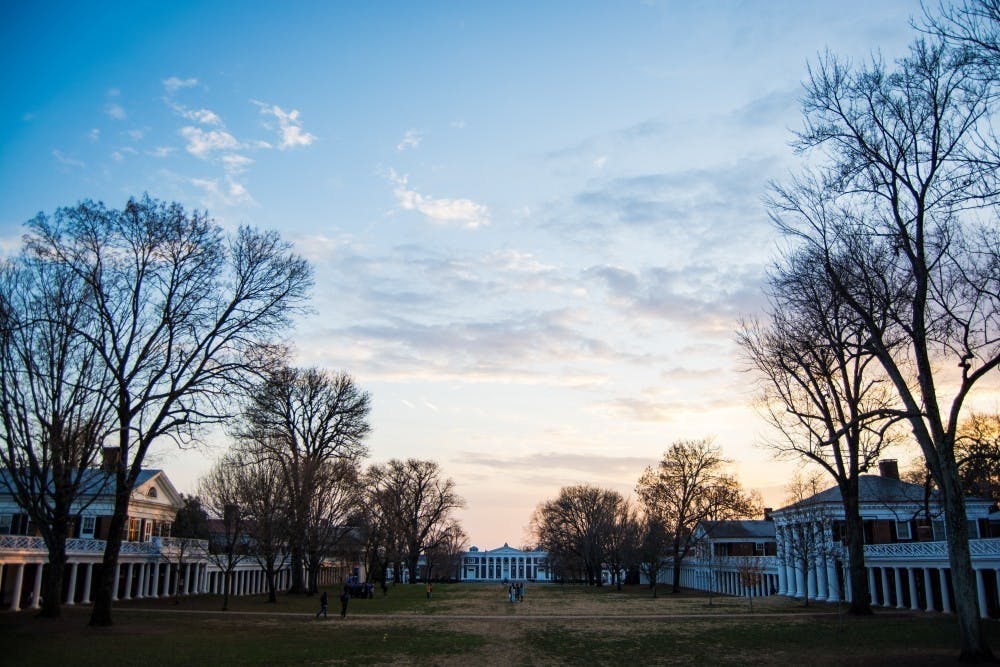This past weekend, Dean of Students Allen Groves sent an email to the entire student body about the COVID-19 pandemic and the approaching extended winter break. In the email, Groves correctly conveys that “it’s clear the pandemic will continue to be a backdrop to our lives for the rest of 2020 and well into 2021.” This email comes to us during a time in which students at the University continue to gather in large groups — even as we enter a new wave of the COVID-19 pandemic in our country. With a vaccine possibly on the horizon, the University must remain steadfast in its commitment to keeping students and Charlottesville safe.
Before the fall semester, the University’s administration had a decision to make — bring students back to Grounds in the middle of a pandemic or move fully online to protect both the University and surrounding communities. The administration risked the lives of its students, the greater Charlottesville area and the communities to which students will now return. Additionally, the University inadequately prepared its faculty and staff — including student resident advisors — to continue working in person despite these risks. While its policies on COVID-19 have been ramped up, we must acknowledge that it never needed to be this bad — the University was perfectly capable of making decisions that would have protected all students. Moving forward, the University must learn from the mistakes it made this semester to create a safe environment for students to return to.
When the semester first began, the Editorial Board wrote our thoughts on the University’s response to the pandemic — it felt like a horror movie. This fear was realized as students contracted the virus at alarming rates — there were more than 50 positive cases a day in mid-September — and entire dorms were forced into quarantine. Over 1,000 students contracted the virus while on Grounds this semester — and these are just the confirmed cases. Students complained about the ineffectiveness of Student Health and the overall difficulty in getting a test. The University brought students back despite being wildly unprepared to handle the virus — its testing capabilities were initially limited, which helped lead to large infection rates.
In a previous editorial, we asked — “Whose lives will be collateral damage in the University’s ill-fated reopening experiment?” To the best of our knowledge, no one has died as a direct result of the University’s lack of precautions. We should all be thankful that we did not have to realize our worst-case scenario. Nevertheless, this accomplishment should not be blindly celebrated. Preventing deaths is the bare minimum — and the University must not operate from this standard moving forward. We hope to see the University hold onto and further the precautions it adopted — albeit too late in the semester — to mitigate any potential long-term health effects of the pandemic.
As the semester progressed, the University stepped up its policies addressing the pandemic, with on-Grounds students receiving tests every nine days and off-Grounds students being randomly selected for prevalence screening. In response to a rapid rise in cases, the administration enforced a new, more restrictive gathering limit of five people. The COVID-19 dashboard shows the effect of these policies, as the number of cases sharply declined in the weeks that followed. Provost Liz Magill instituted an optional credit/general credit/no credit system for the fall semester and quickly extended it to cover January and spring terms. These policies represent the University’s best efforts to adapt to difficult times and support its students. While imperfect, the administration should be given credit where credit is due. However, we should be mindful of keeping the University in check.
With the spring semester on the horizon, the University must recognize the ever-growing risks this virus poses. It is not subsiding — rather, cases continue to rise at record rates. This clearly indicates the need for an even stronger approach if the University is to safely bring students back in the spring. The potential for even more students on Grounds and more in-person class offerings next semester only worsens the risk of the virus spreading. As we near the possibility of a vaccine, students must remember to continue to act responsibly — the pandemic is far from over.
Moving forward, the University must continue its widespread testing efforts and focus on increasing the testing availability for off-Grounds students. Its decision to push back the start of the spring semester demonstrates a good first step, but this must be matched by aggressive testing that ensures another thousand students do not contract this virus. The twists and turns of the fall’s horror movie are fading — we can’t let there be a sequel.
The Cavalier Daily Editorial Board is composed of the Executive Editor, the Editor-in-Chief, the two Opinion Editors, their Senior Associate and an Opinion Columnist. The board can be reached at eb@cavalierdaily.com.







